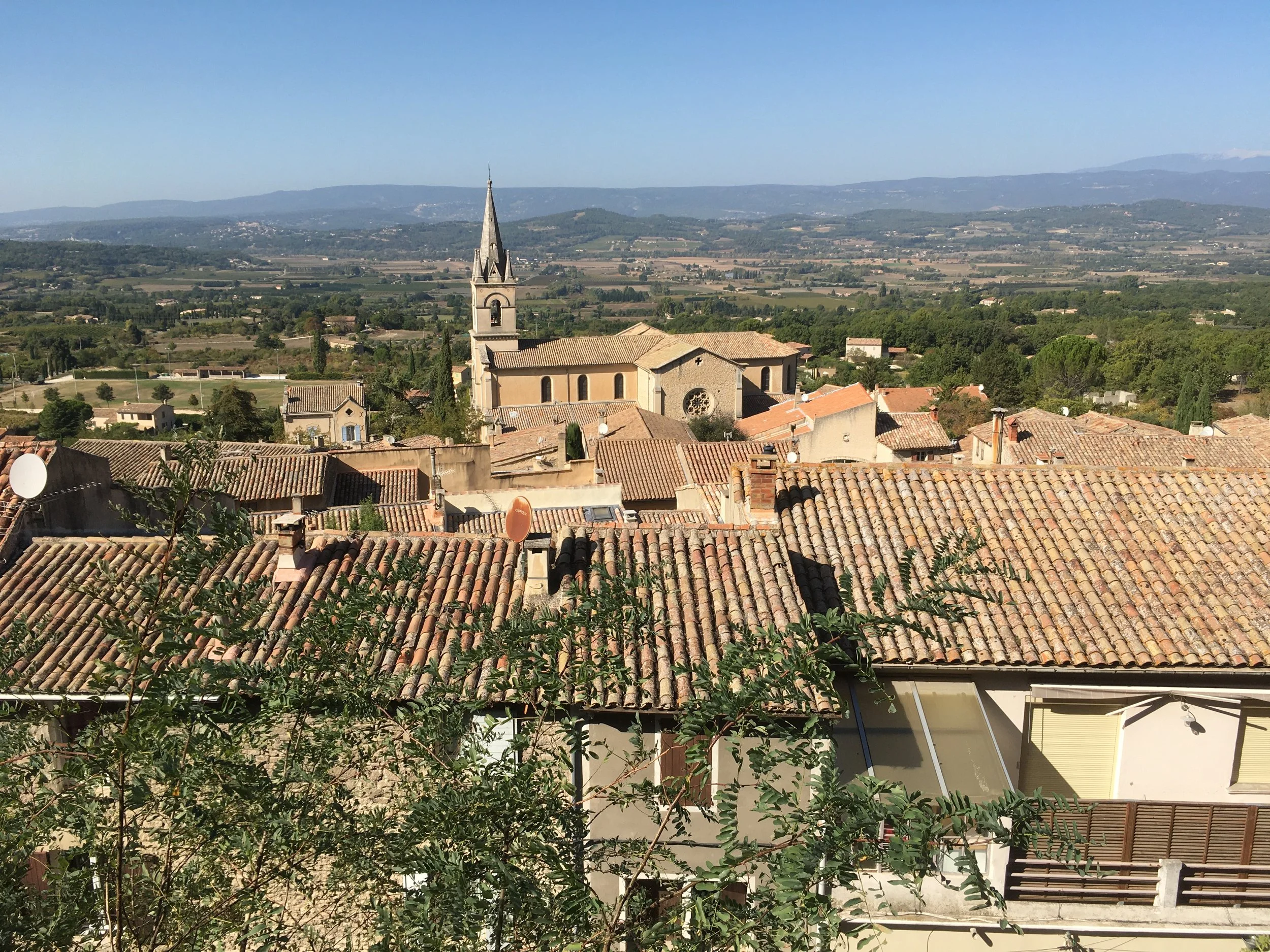40 years on, Several Decisions Later
As of this week, it’s been 40 years. A fraction more than half my life. Two thirds of my adult life. Four decades that this big city boy, born in the Bronx, bred in Manhattan, has lived in this smallish college town—in the south, of all places.
It’s a reminder: if we live long enough, we really have no idea where we’ll wind up, metaphorically or literally.
I had never thought I’d be at home anywhere other than New York. I had felt like the embodiment of that famous Saul Steinberg New Yorker cover, the one that showed the continent ending just beyond the Hudson River.
But things happen, and one decision leads to another which leads to another, and there you are—or, rather, here we are.
The first decision, nearly 50 years ago, was based on a realization that we owned neither house nor car nor had any children, and worked from home. So, we decided to move to Paris—mostly because we could.
It wasn’t easy to do, during that primitive, pre-smartphone era. Today, you can travel or live anywhere, including overseas, and mostly never really leave home; you’re just leaving a place. But you still have Facebook and email and WhatsApp and FaceTime and all the rest.
Not then. So, the idea was to stay for just a bit, at most a couple of years, eat a few baguettes and then, of course, back to New York.
But instead, after a few years, we moved again, this time to a tiny mountain village of 400 people in the south of France. Because, again, we could.
City kids all our lives, we had somehow convinced ourselves we could create a home in the remote countryside, in a foreign country. We had convinced ourselves we wanted what the French called la France profonde. Deep France, sort of like the Deep South. We had absolutely no idea how profonde it was.
We moved into a 16th-century stone house, with what appeared to be 16th-century stone plumbing. The house was built into the village’s ramparts. American friends who visited thought it was quaint. When we had a bat flying around in the rotted rafters of our bedroom, quaint wasn’t quite the word that first came to mind.
Our closest neighbors, aged sister and brother Marthe and Marius, were welcoming. Subsistence farmers, they welcomed us with a freshly killed rabbit along with a crock of the rabbit’s blood, so we could make the sauce. We tried to figure out a gentle way to thank them that wouldn’t encourage them to do it again.
Eventually, the two years we had planned on ended up as nearly a decade. We had friends, and our son was born in France and went to the maternelle there, and although we had prized 10-year residency cards and finally could speak the language with some competency, we were never fully at home.
We’d never be French, of course, not legally nor culturally. But we were no longer American either. In that pre-internet era, we were disconnected from the essence of American life. We didn’t watch Dallas and had no idea who JR was and so didn’t care who might have shot him. We found out John Lennon had been killed only the day after it happened, when we meandered through our village to buy the Le Provencal newspaper at the one épicerie in town.
When we decided it was time to return to the States—our parents were aging, our son needed services not available in France—we knew just one thing: it wouldn’t be to New York. Living away for so long had given us new perspective on what home meant. The world, we now knew, indeed existed beyond the Hudson River.
Also, almost accidentally, we had grown accustomed to the intimacy of small. We liked that the mechanic and baker and pharmacist all knew us by name. We liked that the phone number for the only butcher in town was 72. We enjoyed the view of vast expanses of electric lavender in midsummer. We reveled in having a fig tree in front of our stone house and picking cherries from an overhanging branch while walking in autumn.
We also had grown accustomed to both warmish weather and to a slower pace of life. We no longer wanted snow and noise and constant hubbub. So, we made another life-changing decision: we moved to the American south, even though “The South,” we thought, was the danger of Deliverance or the trash of Tobacco Road or the desperation of Let Us Now Praise Famous Men.
But the town we moved to had the services our son needed, good weather and a university. The pace of life was, once again, slow and steady. We moved to Chapel Hill without knowing a soul who lived there. But since mostly everyone appeared to be from somewhere else, we made friends easily and quickly. Over time, we got jobs, we joined groups, we ensconced ourselves. We found home.
This is how rooted we feel now: We’ve been seeing the same local dentist for 25 years. Same dermatologist for almost 30 years. The woman who cuts our hair—both my wife’s and mine—has been doing that for us for 30-plus years. The pizza guy on Franklin Street knows me by name. The butcher recognizes me with a wave.
How did we get here? We think often of the film “Sliding Doors,” a romantic comedy with Gwyneth Paltrow, back before Goop. The movie explores how one choice, one decision, can lead to drastically different outcomes and you end up in a totally different place from where you thought you’d be.
Sometimes, that place becomes home.



